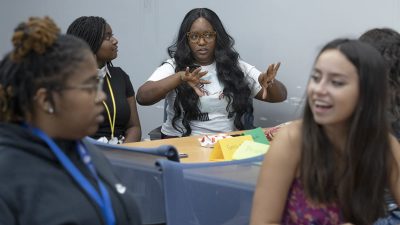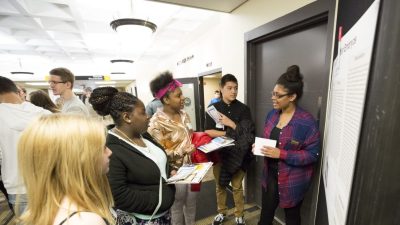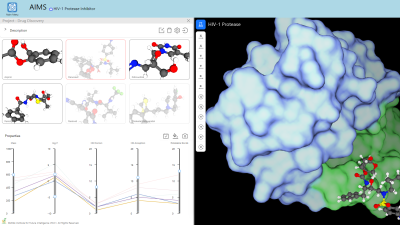#MYHealth: Training the Next Generation of Health Scientists through Participatory Research in Adolescent Health
Project Website(s)
-
Project Description
Despite decades of calls for increased diversity in the health services research workforce, disparities continue to exist for many groups. To increase representation of these historically underrepresented populations, there is a critical need to develop programs that strengthen their path toward health research careers. The overall objective of this proposal is to train and support underrepresented minority high school students to be co-researchers in a community-based participatory research program focused on adolescent health. High school student co-researchers will design and implement studies using a national text messaging poll of 14-24-year-olds.
-
Abstract
Despite decades of calls for increased diversity in the health services research workforce, disparities continue to exist for many populations. To increase representation of these historically underrepresented (“underrepresented minority” or URM) populations, there is a critical need to develop programs that strengthen their path toward health research careers. High school is a critically important time to catalyze interest and rebuild engagement among URMs who may have previously felt excluded from science, technology, engineering, and mathematics (STEM) careers.
The overall objective of this proposal is to engage high school students in Southeast Michigan in a community-based participatory research program focused on adolescent health. Through the Michigan Youth Health (MYHealth) program, we will train URM students to be co-researchers who work alongside academic researchers, which will help them to envision themselves as scientists capable of positively impacting their communities. MYHealth is a 3-phase program, aligned with our three specific aims are: 1) To promote URM high school students’ interest and ability to see themselves in STEM research careers through a mentored summer research experience in adolescent health research (Summer Launch). 2) To develop URM youths’ researcher identities, science self-efficacy, and scientific literacy by engaging students as co-researchers in “Impact Projects” targeting academic, policy, community, and youth audiences. 3) To increase URM students’ leadership and teamwork self-efficacy, participatory research skills, and science persistence by engaging them as “Peer Leaders” in summer and academic-year research programs. We will accomplish these aims by engaging a new cohort of URM high school students during each year of the five-year award period.
Participants will complete up to three program components that become progressively more focused and advanced. First, all participating students will complete a 10-day “Summer Launch” to introduce them to health services research methodologies. Second, students will participate in 9-month virtual “Impact Projects” through which they will conduct their own research on adolescent health topics and disseminate findings to diverse audiences. Third, in Years 2-5 a subset of students (based on emerging research interest) will receive further training and mentorship through “Peer Leader” opportunities in their second year of participation. The proposed #MYHealth program will target core drivers of science persistence: interest in STEM research careers; researcher identity; self-efficacy in science, leadership, and teamwork; and scientific literacy. Students will directly collaborate with and be mentored by a #MYHealth faculty including investigators, community advisors, scientific advisors, and youth peers. If this project is successful, the #MYHealth program could ultimately have a significant and widespread impact on pervasive URM disparities in STEM research careers.
-
Dissemination Strategies
High school student co-researchers will share their findings at the Conference on Adolescent Health and through community dissemination efforts (e.g., social media campaigns, articles, presentations).
Project Audience
High school students in Southeast Michigan.
Subjects Addressed
Research methods, health research, community-based participatory research






